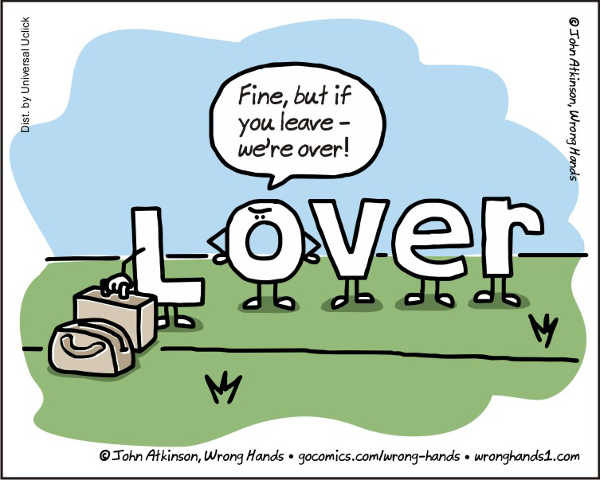FWP:
SETS == KYA; OPPOSITES; WORDPLAY
The commentators stress the elegant wordplay, which is rendered even more spectacular by the fact that lāg is so versatile. Most obviously, it can be either an antonym or a synonym for lagāʾo (though the synonymous usage is rarer). The lover isn't entirely sure he can tell the difference between lāg and lagāʾo ; in fact, he'd be likely to (haplessly? deliberately?) identify the former as the latter. If he did so, he might be wrong-- or he might not. For not only do both nouns come from the same root, but lāg has an extraordinary range of meanings that do indeed include both hatred and love.
And so much more besides! For what the lover might consider to be affection might really be an 'aim, attempt', a 'reaching, attainment', a 'blow, stroke', a 'spite, grudge', a 'narcotic quality', an 'intrigue, plot', a 'secret', a 'trick', a 'charm, spell, fascination', and so on (see the definition above). Any of these possibilities could be mistaken for, or induce a false show of, affection. These complexities of lāg hover as a kind of penumbra, adding to the effect of confusion in the mind of the perhaps deluded lover.
So if the presence of one or another kind of strong emotion can confuse the lover, then might its absence not also prove bewildering, as in (2b)? Or would the lover go on loudly whistling in the dark, as in (2a)?
The desperate lover has thus sought to turn every possible attitude of the beloved's to good account. If she shows love, what could be better? If she shows hatred (or almost any other 'reaching out' emotion), he'll consider it love. And if she shows nothing at all, then he'll console himself with the thought that he's now safe from any deceit and disappointment. None of this really seems very comforting. But then, it may be all the comfort the lover has.
As Josh suggests, compare {148,2}, for a cut-to-the-chase summary of the situation. For other complex deployments of the possibilities of lāg , see {118,2} and {323x,5}.
On samajhnā as 'to consider', see {90,3}.
Compare Mir's treatment of the complexities of lāg : M{817,1}.

Hali:
lāg is enmity; and lagāʾo , love. It would not be strange if someone else too had used this theme, but to this day I haven't seen it. Even if somebody had used it, he would definitely not have used it with this excellence and refinement. The meaning is that the beloved feels toward us neither enmity nor friendship; even if there were enmity, then because in it too is a kind of relationship, we would consider it friendship. But when there is neither friendship nor enmity, then what is there to be deceived about?
Leaving aside the fineness and crowningness of the thought, two words like lāg and lagāʾo have been brought together, that have a single source and discordant meanings. And this is an extraordinary coincidence that has multiplied the excellence of the thought many-fold.
==Urdu text: Yadgar-e Ghalib, pp. 121-22